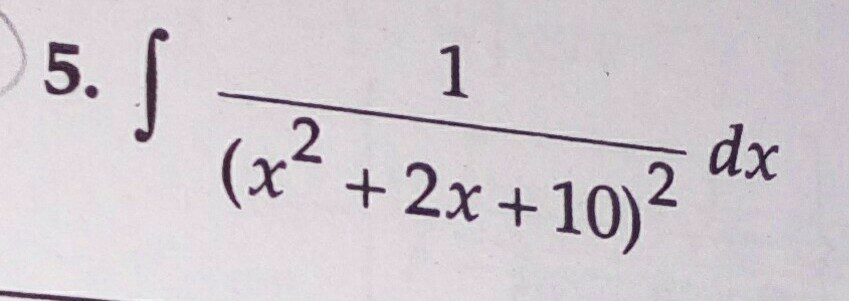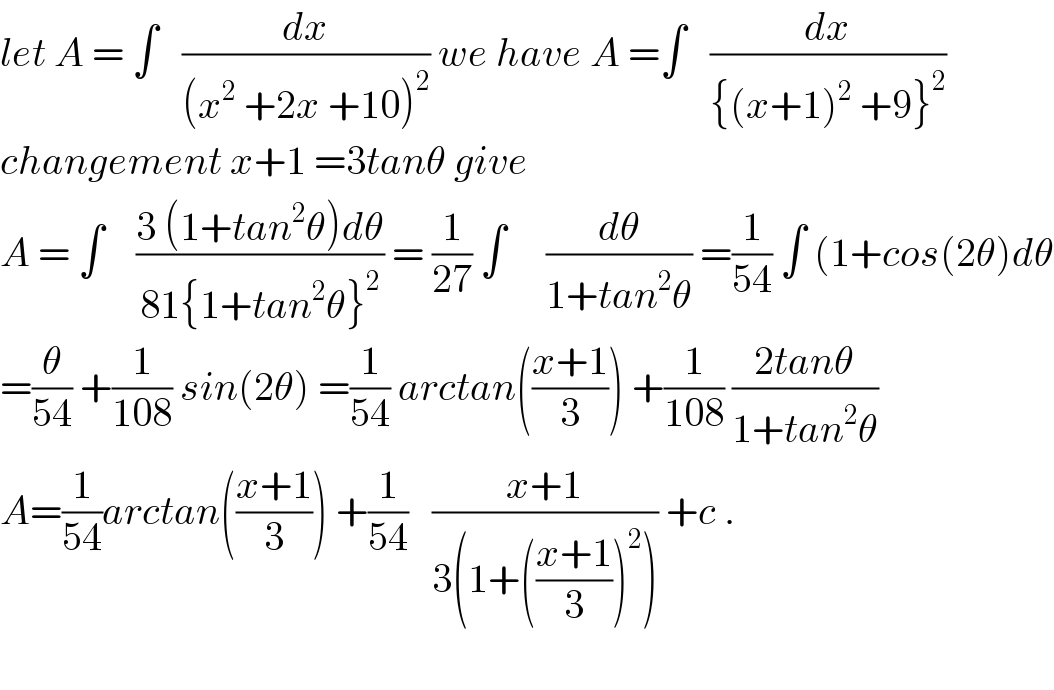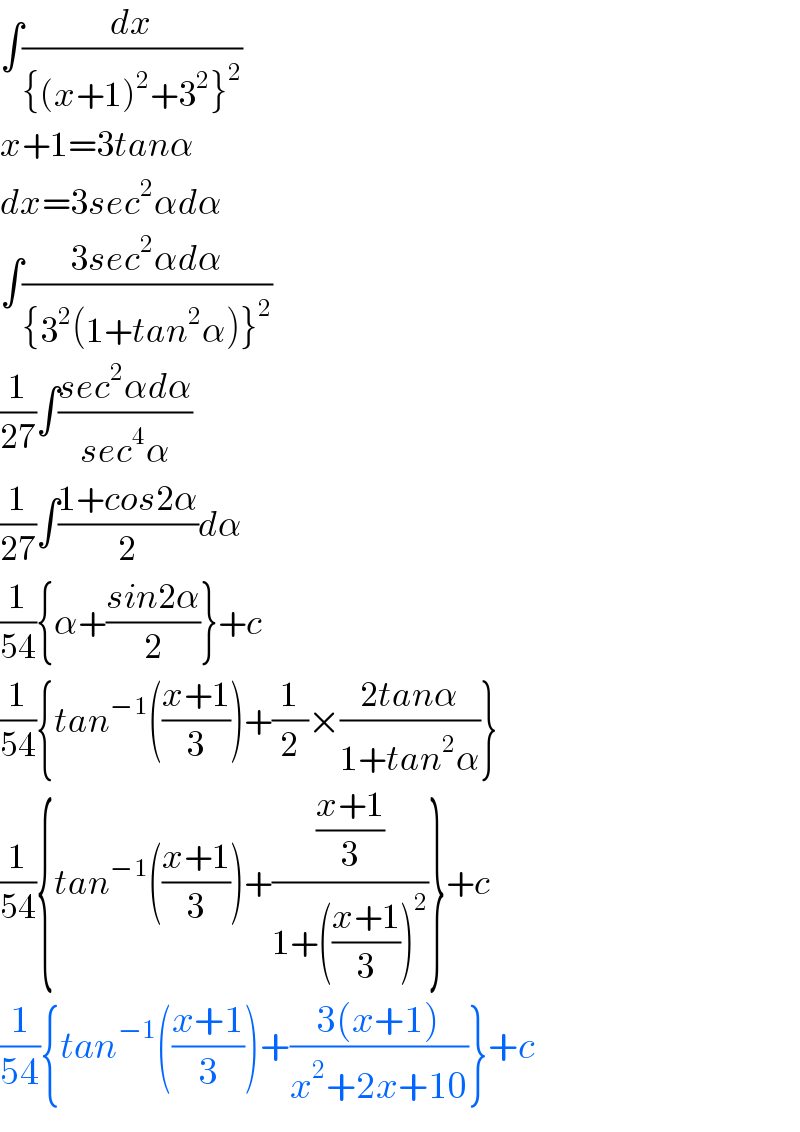
Question and Answers Forum
Question Number 43657 by Tinkutara last updated on 13/Sep/18

Commented by maxmathsup by imad last updated on 24/Sep/18

Answered by ajfour last updated on 13/Sep/18
![∫(dx/([(x+1)^2 +3^2 ]^2 )) let x+1=3tan 𝛉 ⇒ ∫ ((3sec^2 θdθ)/(81sec^4 θ)) = (1/(54))∫2cos^2 θdθ +c .... = (1/(54))[ tan^(−1) (((x+1)/3))+((3(x+1))/((x^2 +2x+10)))]+c .](Q43660.png)
Commented by Tinkutara last updated on 14/Sep/18
Thank you very much Sir! But in answer there is no multiplication with 3 in numerator of 2nd term.
Commented by Tinkutara last updated on 14/Sep/18

Commented by MJS last updated on 14/Sep/18
![(d/dx)[(1/(54))(arctan ((x+1)/3)+((x+1)/(x^2 +2x+10))]= =(1/(54))((1/(3((((x+1)^2 )/9)+1)))+((x^2 +2x+10−(x+1)(2x+2))/((x^2 +2x+10)^2 ))) =(1/(54))((3/(x^2 +2x+10))+((−x^2 −2x+8)/((x^2 +2x+10)^2 )))= =(1/(27))×((x^2 +2x+19)/((x^2 +2x+10)^2 )) so the book is wrong](Q43693.png)
Commented by Tinkutara last updated on 14/Sep/18
Thank you Sir!
Answered by tanmay.chaudhury50@gmail.com last updated on 14/Sep/18

Commented by Tinkutara last updated on 14/Sep/18
Thanks very much Sir! But please check the answer in book.
Answered by MJS last updated on 14/Sep/18
![∫(dx/((x^2 +2x+10)^2 ))=∫(dx/(((x+1)^2 +9)^2 ))= [t=x+1 → dx=dt] =∫(dt/((t^2 +9)^2 ))= [reduction formula ∫(dt/((at^2 +b)^n ))=(t/(2b(n−1)(at^2 +b)^(n−1) ))+((2n−3)/(2b(n−1)))∫(dt/((at^2 +b)^(n−1) ))] =(t/(18(t^2 +9)))+(1/(18))∫(dt/(t^2 +9))= ∫(dt/(t^2 +9))= [u=(t/3) → dt=3du] =(1/3)∫(du/(u^2 +1))=(1/3)arctan u=(1/3)arctan (t/3) =(t/(18(t^2 +9)))+(1/(54))arctan (t/3)= =((x+1)/(18(x^2 +2x+10)))+(1/(54))arctan ((x+1)/3) +C](Q43692.png)
Commented by Tinkutara last updated on 14/Sep/18
Thanks very much.
